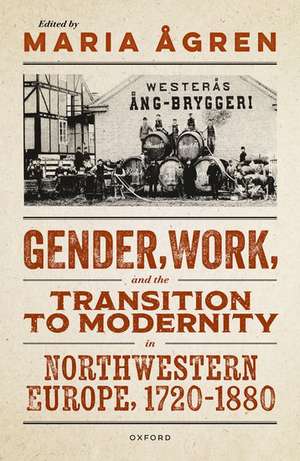Gender, Work, and the Transition to Modernity in Northwestern Europe, 1720–1880
Editat de Maria Ågrenen Limba Engleză Hardback – 20 feb 2025
Preț: 594.38 lei
Preț vechi: 851.14 lei
-30% Nou
Puncte Express: 892
Preț estimativ în valută:
113.75€ • 117.51$ • 94.67£
113.75€ • 117.51$ • 94.67£
Carte disponibilă
Livrare economică 22-28 februarie
Preluare comenzi: 021 569.72.76
Specificații
ISBN-13: 9780198934295
ISBN-10: 0198934297
Pagini: 288
Dimensiuni: 162 x 242 x 22 mm
Greutate: 0.62 kg
Editura: OUP OXFORD
Colecția OUP Oxford
Locul publicării:Oxford, United Kingdom
ISBN-10: 0198934297
Pagini: 288
Dimensiuni: 162 x 242 x 22 mm
Greutate: 0.62 kg
Editura: OUP OXFORD
Colecția OUP Oxford
Locul publicării:Oxford, United Kingdom
Notă biografică
Maria Ågren is a Swedish historian who specializes in early modern and nineteenth-century history. She has published extensively about credit, property, inheritance, marriage, and work, in both Swedish and English. She is the leader of the Gender and Work project at Uppsala University, within which the GaW database was developed as an example of the Digital Humanities. She has supervised 20 Ph.D. students to completion of their doctorates.
